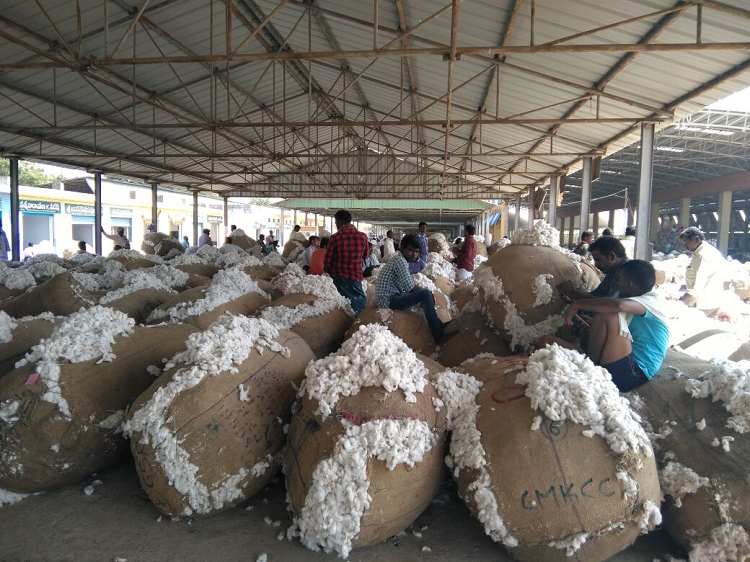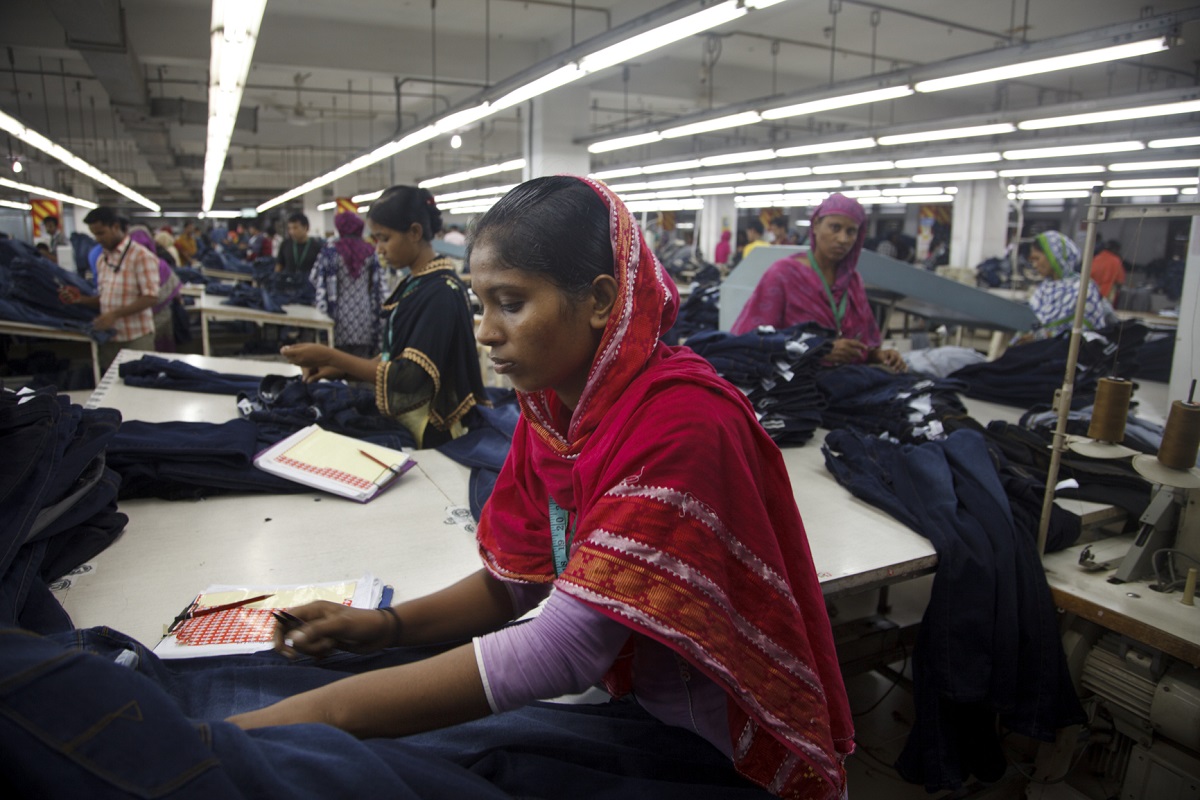The Challenge
Millions of workers, smallholders, and communities in agricultural, forestry and clothing global value chains face poverty, human rights abuses, livelihood insecurity and environmental degradation, especially in low- and middle-income countries. Business and trade can have positive impacts, but there are pressures in the global economy which encourage a ‘race to the bottom’.
As examples, garment workers in Bangladesh and India frequently experience unsafe working conditions, child labour, sexual harassment, and precarious work. Millions of smallholder farmers and producers in Africa, Latin America and Asia also cannot cover the costs of their production due to unfairness in trade systems, leading to insecure livelihoods and a continuation of poverty. Climate change is adding to producers’ problems, and the environment is also affected by unsustainable trade. Diverse efforts exist to improve corporate responsibility and / or accountability in relation to these, often hidden, impacts. But the question is whether such efforts to improve business responsibility are sufficient; companies need to be held to account by governments and civil society, which itself requires changes in the rules of the game for the global economy. There is also a need for innovation to deliver and scale up alternative types of enterprise and trade that are owned by and beneficial for workers, farmers, communities, and can protect and restore environments.
Our Approach
NRI’s research has focused on informing and engaging with Sustainable Supply Chain Initiatives (SSIs), Responsible Business Initiatives (RBIs) and policy makers to improve their impact on producers, workers, communities, and environments. Since 2000, NRI has undertaken a major body of research, producing over 100 publications on strategies and impacts relating to supply chain responsibility and sustainability. SSIs seek to improve the sustainability of production and trade in different sectors by employing a diverse range of mechanisms. Issues they aim to address include sustainability in global trade, disadvantaged workers’ and farmers’ livelihoods and rights, and the environmental impacts of business. RBIs employ various levers to influence corporate conduct, e.g. working through corporate codes and auditing, mobilising investor pressure, creating public benchmarks to rate corporate performance. Policymakers set the policies, laws and regulations which create the rules of the game for private sector actors and increasingly engage with SSIs and RBIs in their policymaking.
 NRI’s extensive research on SSIs, RBIs, relevant policies and regulations, and the role of civil society in holding companies to account, generated evidence on the effectiveness and impact of different initiatives, commodities, and countries. The NRI team helped SSIs understand and use Theory of Change approaches, setting out how they intend to bring about change and articulating the causal connections between planned actions and anticipated impacts – theory of change thinking to inform design and evaluation was previously unfamiliar to SSIs, RBIs and the development community. This work challenged the widespread assumption that well-intentioned initiatives achieve sufficient, or only positive, social, and environmental impacts. The team demonstrated that the impact of sustainability standards and movements is highly variable, context specific and has limited potential with respect to systemic change in global value chains. An important finding was that theory-based evaluation and an outcomes-focus in design for SSIs are essential for learning about and improving impact in conditions of complexity.
NRI’s extensive research on SSIs, RBIs, relevant policies and regulations, and the role of civil society in holding companies to account, generated evidence on the effectiveness and impact of different initiatives, commodities, and countries. The NRI team helped SSIs understand and use Theory of Change approaches, setting out how they intend to bring about change and articulating the causal connections between planned actions and anticipated impacts – theory of change thinking to inform design and evaluation was previously unfamiliar to SSIs, RBIs and the development community. This work challenged the widespread assumption that well-intentioned initiatives achieve sufficient, or only positive, social, and environmental impacts. The team demonstrated that the impact of sustainability standards and movements is highly variable, context specific and has limited potential with respect to systemic change in global value chains. An important finding was that theory-based evaluation and an outcomes-focus in design for SSIs are essential for learning about and improving impact in conditions of complexity.
Our Impact
NRI research and sustained engagement has informed SSIs and donors, causing strategic policy changes and actions, leading to improved impacts on producers, workers, communities, and environments in or affected by global value chains in low- and middle-income countries (LMICs). Specific impacts include:
- NRI research informed and catalysed the organisational strategy changes of the Better Cotton Initiative (BCI), which enhanced their environmental impacts and the livelihoods of cotton producers and workers in LMICs, especially India. [Non-profit BCI is the largest cotton sustainability programme worldwide, reaching over 2.3 million cotton farmers in 23 countries, accounting for 22% of global production in 2018–19. It has 1,840 members (companies, farmer organisations), who sourced over 1.5 million tonnes of ‘Better Cotton’ in 2019.]
- NRI’s studies catalysed the organisational policy and strategy changes of Fairtrade International, enhancing their impacts on the incomes and livelihoods of disadvantaged producers and workers, especially women, in LMICs. [Non-profit Fairtrade International is a multi-stakeholder association of 22 member organisations. The Fairtrade mark appears on 35,000 products, sold in 145 countries. There are 1,822 Fairtrade producer organisations, representing 1.7 million producers].
- NRI’s research and sustained engagement improved the learning and action of ISEAL and Sustainability Standard Members, increasing their impact on millions of producers and workers in LMICs, with further impacts on communities and environments. [ISEAL is the global membership organisation for credible sustainability initiatives. Its 26 members include Rainforest Alliance, Fairtrade International, Better Cotton Initiative, Forest Stewardship Council, Roundtable on Sustainable Palm Oil.]
- NRI’s work improved learning and action by RBIs, increasing their impact on producers, workers, communities, and environments in LMICs. The team carried out monitoring, evaluation, and learning of DFID’s £30 million programme, Responsible, Accountable and Transparent Enterprise (RATE), and strengthened the capacity of 12 global RBIs to learn how to generate impact evidence and improve their strategies toward impact. [RBIs: Global Reporting Initiative, Ethical Trading Initiative, B Lab, UN Global Compact, ShareAction, Shift, Fairtrade, ISEAL, UK National Contact Point, British Academy Research Programme on Modern Slavery and Human Rights, World Benchmarking Alliance and Humanity United.]
NRI’s research informed UK government policy and programme strategies on the limits of current approaches and the need to move beyond business responsibility to accountability and to different types of enterprises and economies. This has stimulated government support for more systems-oriented, sector-wide and mandatory approaches [UK Department for International Development (DFID) programmes include RATE, Partnerships for Forests and Trade and Global Value Chain Initiative].
NRI’s research has directly informed the SSIs who target millions of workers, smallholders, and communities. The types of impact achieved are a) Increased smallholder producer and worker income, livelihood security, environmental improvements; b) Greater gender equality and participation of women smallholders and temporary/casual workers in different SSIs and share of livelihood benefits; c) More effective programming and partnerships for transformative impact across sectors.
Our Partners
- University of Nairobi, Kenya
- World Agroforestry (ICRAF)
- ISEAL
- University of the Andes, Colombia
Key publications
- V. Nelson, J. J. Kessler, J. W. Molenaar, D. Smith, H. Betts, E. E. K. Damayanti, W. Hasyim, A. Baquero, A. Martins (2021) Transformative Change in Tropical Forest Landscape Initiatives’. LTS-NIRAS report commissioned by the UK government (FCDO-BEIS). Transformative Change in Tropical Forest Landscape Initiatives - Partnerships for Forests
- Nelson, Valerie and Flint, Michael (2019) Critical reflections on responsible business initiatives and systemic constraints for achieving a safe and just operating space for humanity. In: Lund-Thomsen, Peter, Hansen, Michael and Lindgreen, Adam, (eds.) Business and Development Studies: Issues and Perspectives. Routledge, UK. ISBN 978-1138059870
- R. Kumar, V. Nelson, A. Martin, A. Latheef, B. Suresh Reddy, L. Narayanan, D. Badal, S. Young (2019) ‘Evaluation of the early impacts of the Better Cotton Initiative on smallholder cotton producers in Kurnool district India: Final Evaluation Report’. Commissioned by ISEAL and the Ford Foundation, Natural Resources Institute, University of Greenwich, Chatham.
- Nelson, V., X. Rueda, and W. Vermeulen (2018) ‘Challenges and Opportunities for the Sustainability Transition in Global Trade (introduction to Special Issue)’, Journal of Business Strategy and the Environment. DOI: 10.1002/bse.2008
- Nelson, V. and D. Phillips (2018) ‘Sector, landscape or rural transformations? Exploring the limits and potential of agricultural sustainability initiatives through a cocoa case study’. Journal of Business Strategy and the Environment. DOI: 10.1002/bse.2014
- V. Nelson, O. Martin-Ortega, and M. Flint (2020) ‘Making Human Rights Due Diligence Work: An Analysis of Impact and Legal Options’. Full Report. NRI and BHRE Programme, University of Greenwich. Commissioned by the Fair Trade Advocacy Office and Brot fur die Welt; Chatham, UK.
Contact: Prof Valerie Nelson | +44 (0)1634 88 3156 | Email


